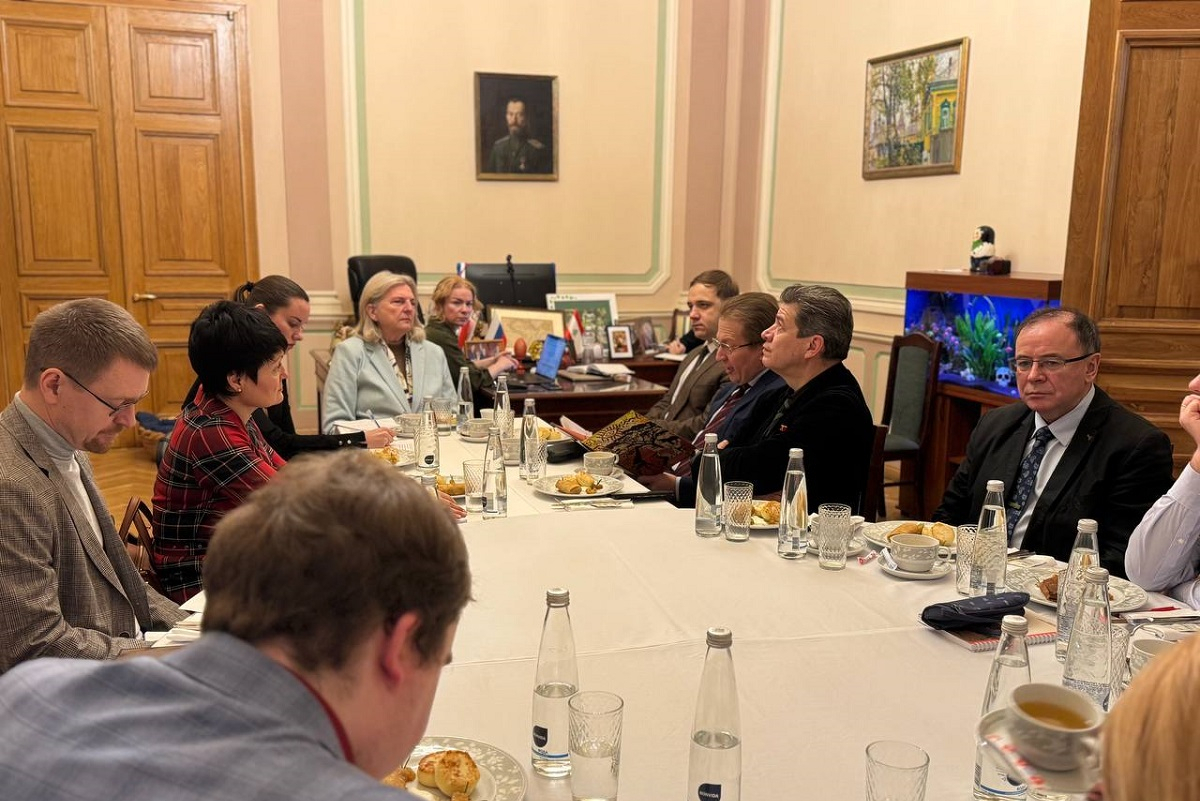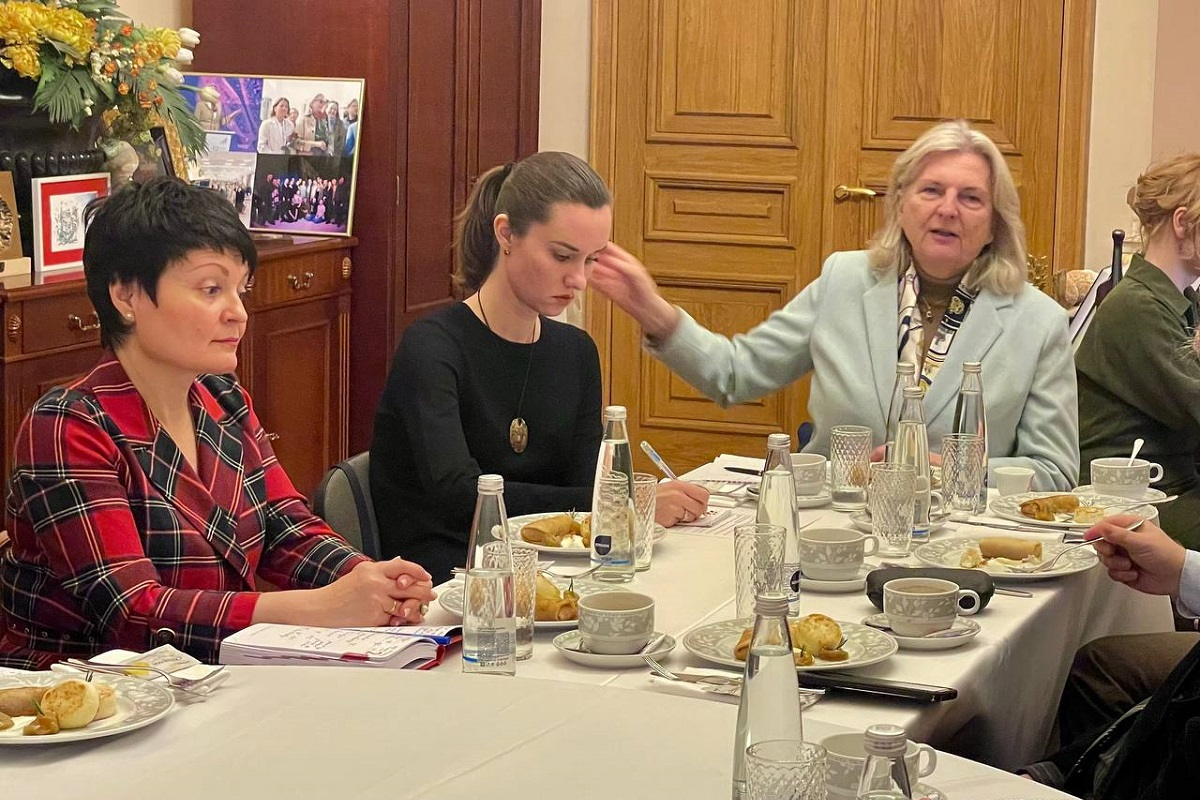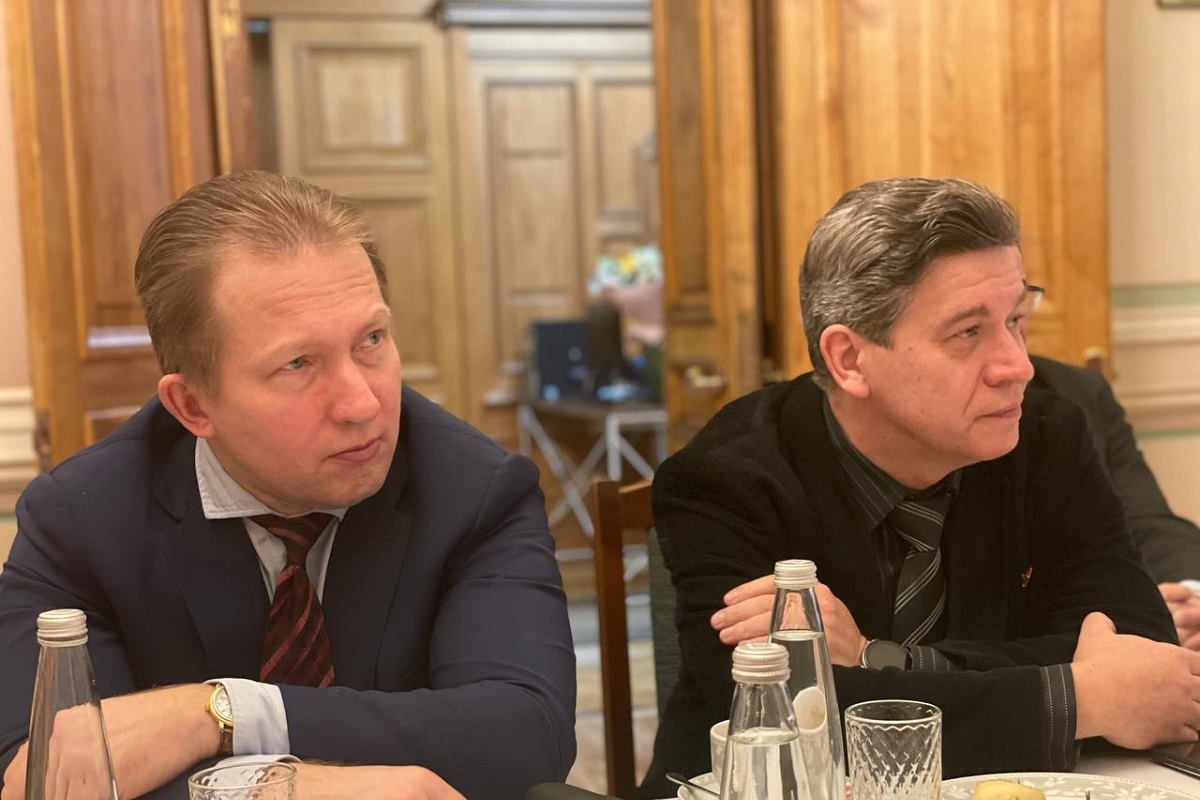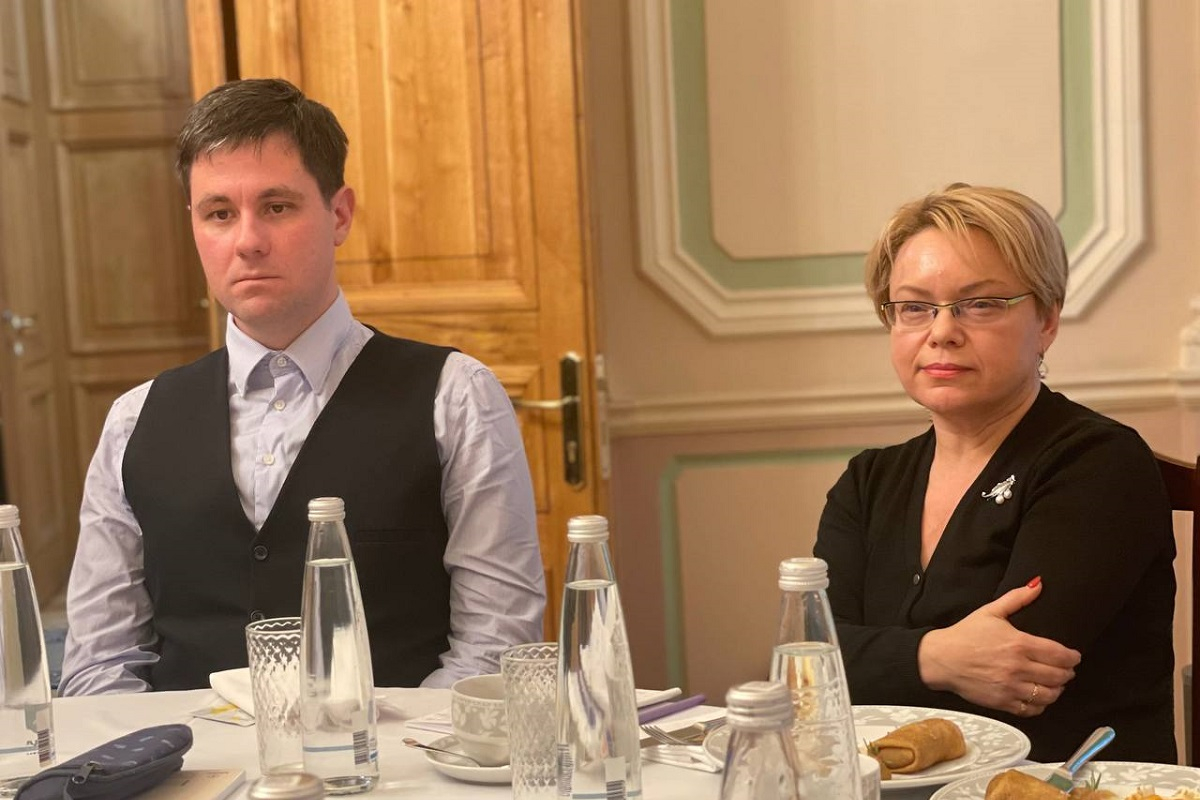The next meeting in the G.O.R.K.I. breakfast format with Karin Kneissl held at St Petersburg University
The Geopolitical Observatory for Russia’s Key Issues (G.O.R.K.I. Centre at St Petersburg University) has hosted a meeting of the expert working group entitled "Neocolonialism: Old Threats in a New Era" to deliberate on Russia’s current activities in the anti-neocolonial movement.
The discussion focused on contemporary Western practices of neocolonialism and the ongoing efforts to counter them, including Russia’s leading role in this struggle.
Active work in this area is being carried out at the federal level under the leadership of Dmitry Medvedev, Deputy Chairman of the Security Council of the Russian Federation.
Colonialism has been a persistent challenge throughout human history. The term "neocolonialism" was coined in the mid-20th century to describe the strategies employed by former colonial powers to contain the development of younger nations that had recently gained formal independence. These strategies were implemented in order to compensate for the metropoles’ own losses caused by de-colonisation.
Special attention at the meeting was given to the importance of fostering a unified Russian-speaking environment. To address this issue in practice, it is essential to establish new branches of Russian universities abroad and transform them into vibrant, full-fledged centres of Russian culture and education operating on a permanent basis. This approach will enable the effective and systematic implementation of cultural and educational programmes aimed at shaping a positive image of Russia. Additionally, proactive efforts should be undertaken to enhance a positive image of Russia internationally through media and social networks.

The meeting was held in the G.O.R.K.I. breakfast format with Karin Kneissl. It is a new format event proposed by Nikolay Kropachev, Rector of St Petersburg University. The idea behind these meetings is to bring together subject matter experts from among the University’s staff and students to discuss current political and economic issues in order to develop concise expert recommendations for decision-making institutions.
According to the experts, greater attention should be given to the education of foreign students at Russian universities and the development of competitive study programmes that ensure a new quality of education. The meeting participants also highlighted the need to establish an independent conceptual framework distinct from imposed Western concepts and narratives. Addressing this issue will enable Russia to break away from the influence of Western development models and existing political ideologemes. The researchers further concluded that, at the academic level, this issue should be incorporated into graduation projects, curricula, and individual disciplines within academic programmes, particularly in the course "Fundamentals of Russian Statehood." Additionally, the advancement of national digital platforms to reduce dependence on Western countries, including in the field of artificial intelligence, will help Russia secure technological sovereignty and a leading position in this sector.
As an outcome of the meeting, Karin Kneissl, Head of the G.O.R.K.I. Centre at St Petersburg University, and Viktor Titov, Vice-Rector of St Petersburg University, proposed continuing discussions on this subject within the framework of the G.O.R.K.I. Centre’s activities. They also suggested extending these discussions to key forums, such as the St Petersburg International Economic Forum and the St Petersburg International Legal Forum, with the participation of federal leaders, government representatives, and representatives from other organisations.




